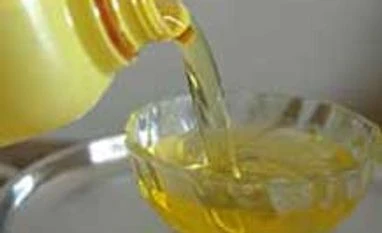"The Cabinet's decision of a meager increase by 2.5% to 10% in customs duty on RBD Olein will not be of much help to Indian domestic refineries and RBD Olein will continue to be imported as before," the Solvent Extractors' Association President Vijay Data said in a letter to members.
Earlier this month, the government increased import duty on refined edible oil to 10% from 7.5% to protect the domestic processing industry and farmers. Import duty on crude edible oil is currently 2.5%.
More From This Section
India imports more than 10 million tonnes of vegetable oils every year, which is almost 50% of domestic need.
"The present increase will help the industry just to 'come out from ICU to Hospital Ward' but will not help to make the industry healthy," Data said.
"I would like to appeal to the Government once again to create a larger duty difference (between crude and refined edible oils) at least of 10% to place the industry on the path of recovery," he added.
The association had been demanding a hike in the custom duty on RBD Olein to create the duty difference of total 14.5% --- which is 7.5% as per Lahiri Commission Report plus 7% export duty difference between crude and refined oils of Indonesia.
The association argued that difference between landed prices of crude palm oil and refined palm oil which was almost Nil prior to Cabinet decision now stands at USD 20, while Indian refining cost including losses works out to be USD 40-50 per tonne.
"Unless the customs duty on refined edible oils is higher by 14.5% over the customs duty on crude edible oils, our refining industry will continue to suffer," Data said.
In 2012, India had imported RBD Palm Oil to the tune of 1.57 million tonne when there was 7.5% duty difference between the crude and refined oils.
With a reduction of duty difference to 5% in January 2013 import jumped to 2.38 million tonnes in 2013 and the capacity utilization of Indian refining industry reduced from 55-60% to 35-40% in one year, it added.
)